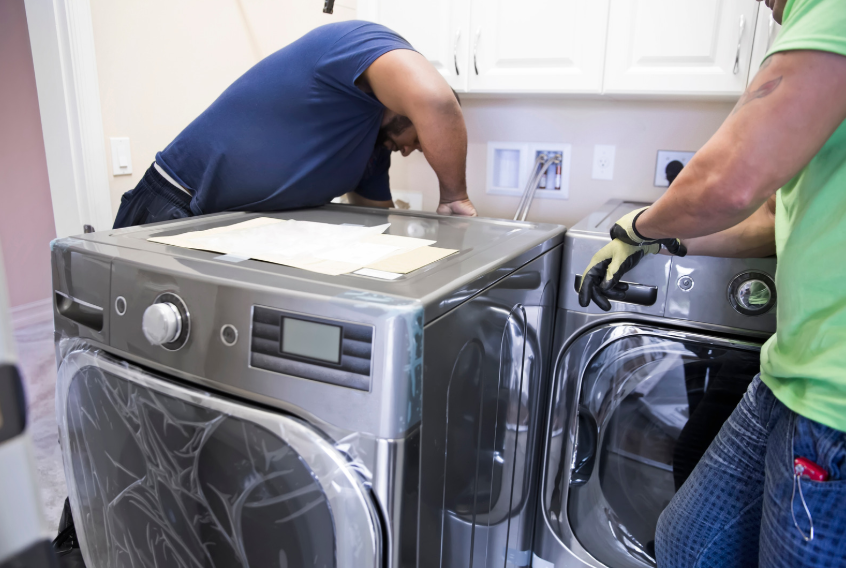
Artificial Grass Solution Provider in San Juan: Quality Turf for Rooftops, Patios, and Gardens
Maintaining a lush, green lawn in San Juan can be

A washing machine that refuses to spin can quickly disrupt your daily routine. This problem often leaves clothes soaking wet and delays your laundry tasks. Understanding why your washer isn’t spinning and finding practical solutions is key to restoring its functionality. Whether the issue is minor or major, knowing the common causes and how to address them will save you time and money on washer repair.
The spin cycle in a washing machine plays a crucial role in extracting water from your clothes, making them easier to dry. If your washer isn’t spinning, it could signal a mechanical, electrical, or operational issue. Ignoring the problem can lead to more extensive damage, resulting in costly washer repair. By identifying the root cause early, you can take appropriate action to get your washing machine back in working order.
An overloaded or unevenly distributed load is one of the most common reasons for a washer not spinning. When clothes bunch up on one side of the drum, the machine’s sensors detect an imbalance and prevent spinning to avoid damage. Addressing this issue is often a straightforward washer repair task.
If water isn’t draining properly, your washer may not spin. Blockages in the drain pump or hose can lead to standing water in the drum, stopping the spin cycle entirely. Regular maintenance can prevent clogs and reduce the need for frequent washer repair.
The drive belt connects the motor to the drum and is essential for spinning. Over time, the belt may wear out or snap, causing the drum to stop moving. Inspecting and replacing the drive belt is a common washer repair solution for this issue.
Most washing machines won’t spin unless the lid or door is securely closed. A faulty lid switch or door lock mechanism can interrupt the spin cycle. Testing these components can help determine if they require washer repair or replacement.
The motor powers the spin cycle, and a malfunctioning motor or motor coupler can prevent the washer from spinning. Signs of motor-related issues include loud noises, a burning smell, or complete inactivity. Addressing motor problems often requires professional washer repair.
The control board and timer are responsible for coordinating the washer’s functions. If they fail, the spin cycle may not initiate. Diagnosing and fixing control board problems often involve complex washer repair procedures best left to experts.
Redistribute your laundry evenly around the drum and remove any excess items. Run a spin test to ensure the problem is resolved. This simple adjustment often eliminates the need for extensive washer repair.
To clear clogs, unplug the washer and locate the drain pump and hose. Remove any debris or blockages and reassemble the components. Regular cleaning can prevent recurring issues and reduce washer repair costs.
Examine the drive belt for signs of wear or damage. If the belt appears frayed or broken, replace it following the manufacturer’s instructions. This straightforward washer repair can restore your machine’s spin function.
Test the lid switch or door lock using a multimeter to check for continuity. If defective, replace the component to ensure your washer spins as expected. Properly functioning safety mechanisms are essential to avoid costly washer repair.
For motor or control board issues, it’s often best to consult a professional. These components are complex and require advanced expertise to repair. Attempting DIY fixes could lead to more expensive washer repair needs.
While many issues can be resolved with basic troubleshooting, some problems require professional intervention. If your washer isn’t spinning despite your efforts, contact a reliable washer repair service. Professionals can accurately diagnose and fix issues, ensuring your machine functions efficiently without further damage.
A washer that refuses to spin can be frustrating, but understanding the causes and solutions can save you time and effort. From simple fixes like redistributing laundry to more involved washer repair tasks like replacing components, addressing the issue promptly will keep your laundry routine on track. If DIY troubleshooting doesn’t resolve the problem, don’t hesitate to seek professional washer repair services. Proper care and maintenance will ensure your washer remains a reliable household appliance for years to come.

Maintaining a lush, green lawn in San Juan can be

Walls are more than structural elements; they set the tone

Urban living in Pasay presents unique challenges for landscaping. Limited

Modern interior design emphasizes creativity, functionality, and a sense of

Modern interior design trends in Mandaluyong emphasize creativity, texture, and

Maintaining a lush and vibrant lawn in Navotas can be

Yarn woven covers are becoming a preferred choice for homeowners,

Finding a reliable artificial plant supplier near me can make

Maintaining a beautiful green lawn in the Philippines can be

Bringing greenery into homes, offices, or commercial spaces has never